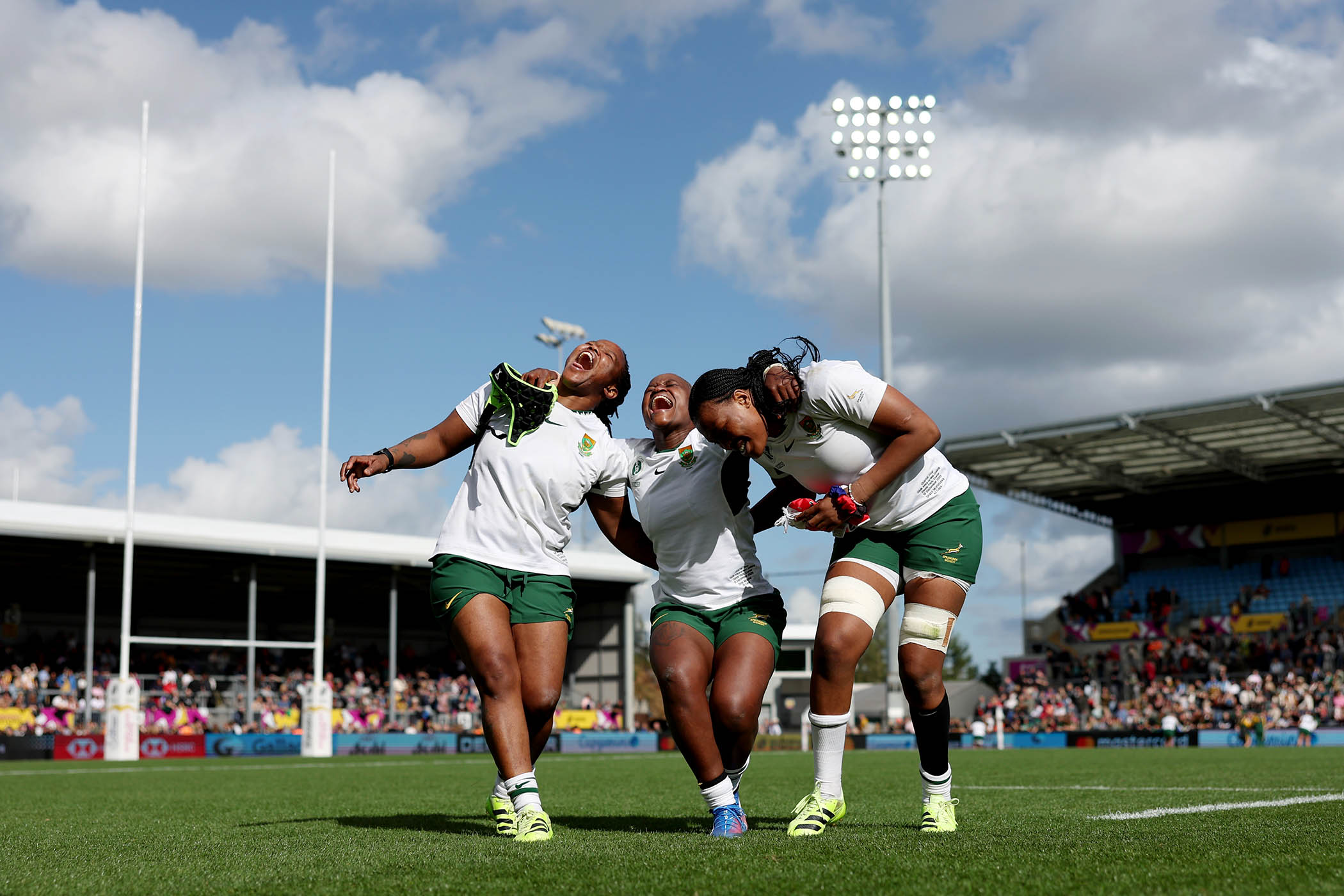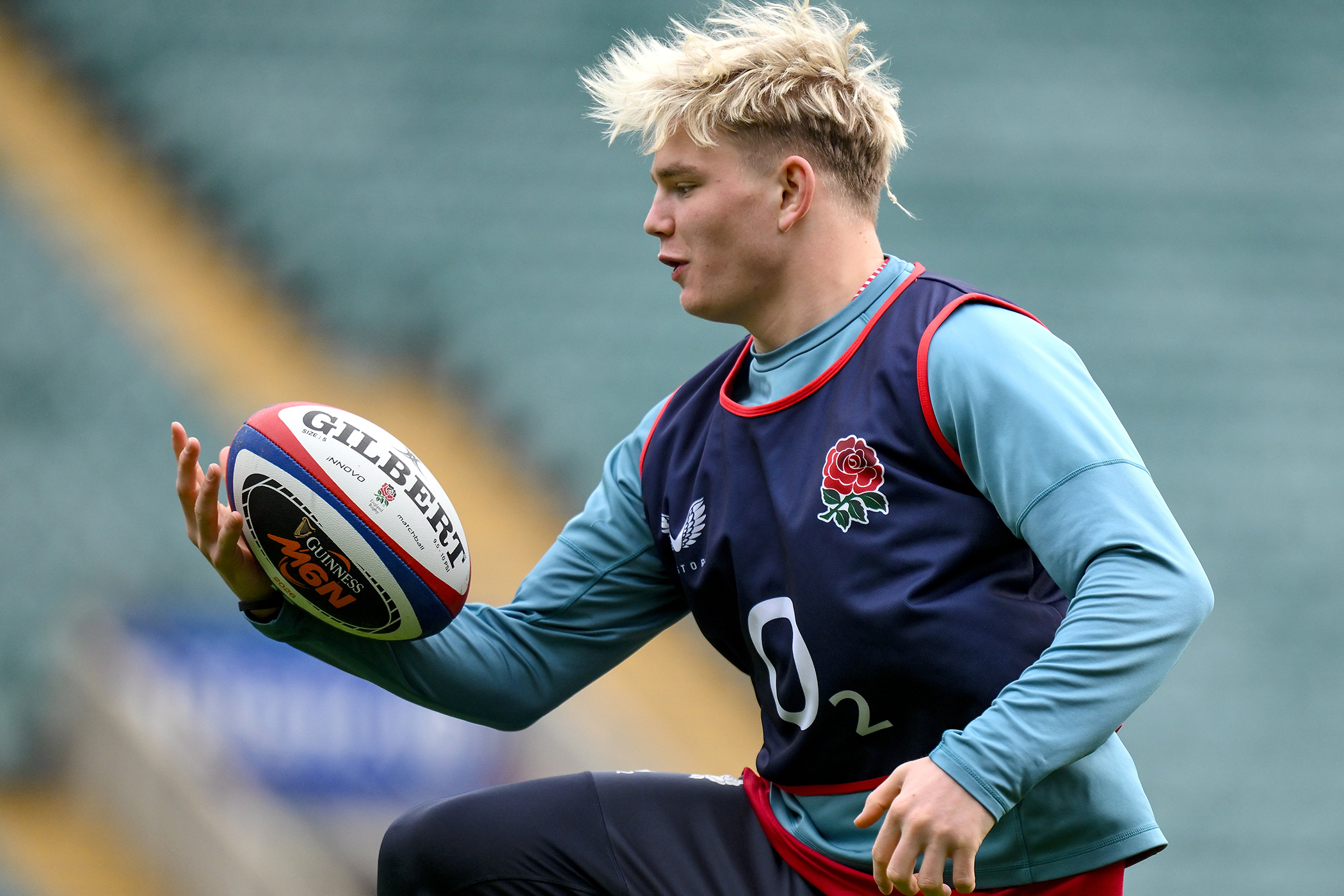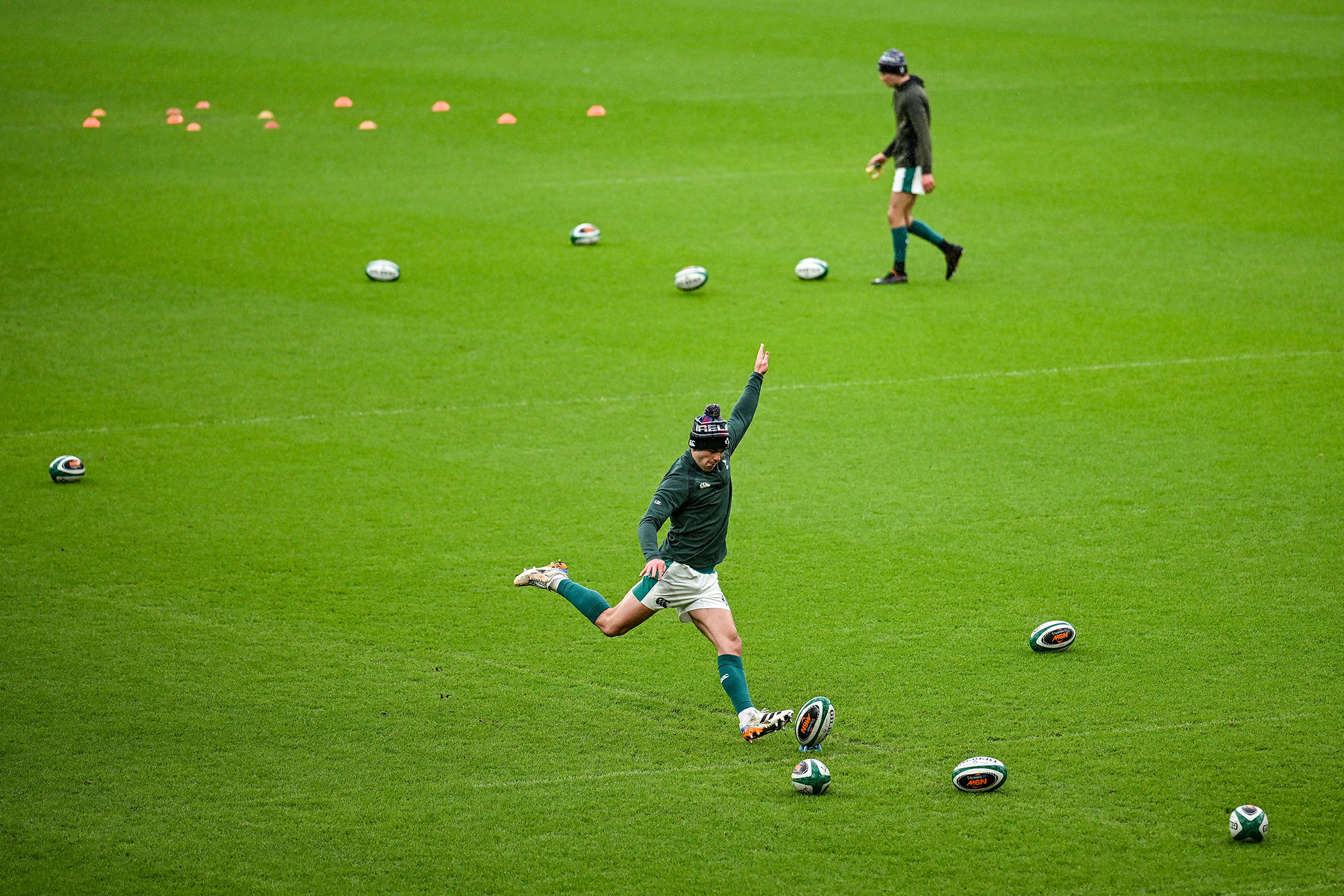Matches are not decided at half-time, obviously. The Black Ferns are into the Women’s Rugby World Cup semi-finals as expected, booking a date with Canada to decide who will make the final at Allianz Stadium and potentially ruin England’s party. What the 46-17 final score against South Africa will not tell you is that, for a moment, it seemed as though the Springboks might pull off one of the most extraordinary upsets in this tournament’s history.
If anyone told you they expected South Africa to be tied 10-10 at the break with the six-time world champions, they were almost certainly lying. This is a side who the South African Rugby Union decided should not enter the 2017 tournament due to fears they would be embarrassed.
Lacking resources as a team, undervalued as players and people, few expected this Springbok squad to make it out of the pool stages. To have achieved that – thanks to a first-ever win over Italy, sparking incredible celebrations in York – meant this had already been a historic tournament for South Africa. To then hold New Zealand scoreless beyond the 20-minute mark, before crashing over for the first try of the quarter-final through Babalwa Latsha? Entirely, wonderfully, unexpected. Their achievement of reaching the last eight for the first time will ideally lead to the kind of generational shift back in South Africa that their performances in this World Cup so thoroughly deserve.
South Africa do not have the same scything threats out wide as the Black Ferns. What they do possess, unquestionably, is forward power. You are unlikely to see another 13-player lineout turn into a 15-player maul again for a while, but the Springbok Women made it work. Their three tries were built on the strength of their pack from close range, with Aphiwe Ngwevu and Lerato Makua also charging over.
New Zealand’s response to being level at half-time was to explode into the second half, their three tries in seven minutes pouring cold water over the prospect of South Africa pulling off one of the great shocks. Superstar Braxton Sorensen-McGee also added two tries to her breakout tournament.
Kaipo Olsen-Baker was an immense story in her own right, having overcome an ankle injury against Spain in the pool stages which appeared at the time to put her participation in jeopardy. Bruising carries, 25 tackles and two tries meant her player-of-the-match award was incredibly deserved.
Perversely, South Africa providing such a stern test for the Black Ferns over long periods will only benefit Allan Bunting’s side heading into their semi-final.
Canada, the 2014 runners-up continue to look in ominous form after racing into a 31-5 half-time lead against Australia, a position from which the Wallaroos were never likely to recover.
Quick ruck speed led to Canada’s opening try inside three minutes through Asia Hogan-Rochester, created by Canada’s excellent Sophie de Goede, who went on to start and finish the move which led to her own try after bursting out of her own 22. De Goede – a rarity as a forward who also kicks for goal – also added four conversions.
This is a team with outstanding individuals – De Goede, Alex Tessier, Emily Tuttosi – but what comes across watching Canada is how well they connect as a side, the interplay between forwards and backs. While the floodgates did not completely open, a 46-5 triumph was utterly comprehensive. Desiree Miller scored early for Australia but they failed to fire another shot in head coach Jo Yapp’s final game in charge.
Newsletters
Choose the newsletters you want to receive
View more
For information about how The Observer protects your data, read our Privacy Policy
Ireland, meanwhile, could not ask for a bigger boost ahead of their quarter-final against France today than the return of Aoife Wafer. Their outstanding back-rower, and the 2025 Women’s Six Nations player of the tournament, had knee surgery at the start of July. Ireland will need Wafer to be at her best if they are to defeat France for the first time since 2017.
Photograph by Alex Davidson/ World Rugby via Getty Images



